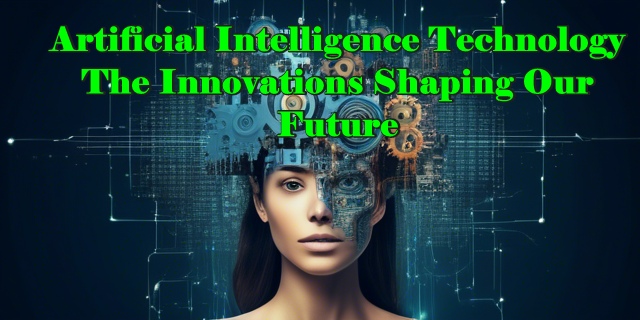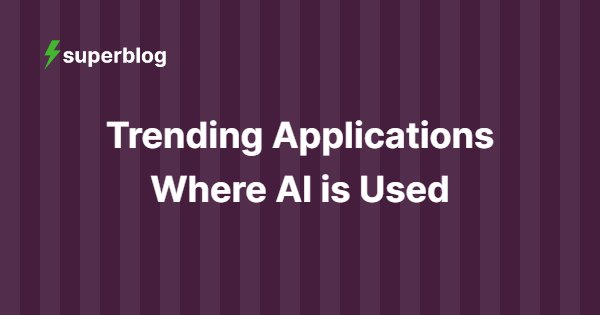The Convergence of AI and IoT: Unlocking the Potential of Connected Devices
The convergence of Artificial Intelligence (AI) and the Internet of Things (IoT) is revolutionizing the way we interact with the world around us. By connecting devices and leveraging AI’s capabilities, we are unlocking a future where our surroundings become smarter, more efficient, and more responsive to our needs.
AI empowers IoT devices with the ability to learn, adapt, and make decisions autonomously. This enables them to perform complex tasks, such as predictive maintenance, anomaly detection, and personalized recommendations. For instance, AI-powered IoT sensors can monitor industrial equipment, predicting potential failures and scheduling maintenance before breakdowns occur, minimizing downtime and maximizing productivity.
Moreover, AI enhances the security of IoT networks. By analyzing data from connected devices, AI algorithms can identify suspicious patterns and potential threats, enabling proactive measures to prevent cyberattacks. This is crucial as the number of IoT devices proliferates, expanding the attack surface for malicious actors.
The integration of AI and IoT also drives innovation in various industries. In healthcare, AI-powered IoT devices can monitor patients’ vital signs remotely, enabling early detection of health issues and personalized treatment plans. In transportation, AI-enabled IoT systems optimize traffic flow, reduce congestion, and enhance safety by analyzing real-time data from vehicles and infrastructure.
Furthermore, AI and IoT are transforming the way we interact with our homes and cities. Smart homes equipped with AI-powered IoT devices can automate tasks, adjust lighting and temperature based on preferences, and provide personalized entertainment recommendations. Smart cities leverage IoT sensors and AI to monitor air quality, optimize energy consumption, and improve public safety.
However, the convergence of AI and IoT also presents challenges. Data privacy and security concerns arise as these technologies collect and process vast amounts of data. Ethical considerations must be addressed to ensure that AI-powered IoT systems are used responsibly and do not infringe on individual rights.
In conclusion, the future of AI and IoT holds immense potential for creating a smarter, more connected world. By leveraging AI’s capabilities to enhance the functionality and security of IoT devices, we can unlock new possibilities in various industries and improve our daily lives. However, it is essential to address the challenges associated with these technologies to ensure their responsible and ethical use. As we continue to explore the convergence of AI and IoT, we can anticipate a future where our surroundings become increasingly intelligent, responsive, and tailored to our needs.
AI-Powered IoT: Enhancing Efficiency and Automation in the Digital Landscape
The convergence of Artificial Intelligence (AI) and the Internet of Things (IoT) is revolutionizing the digital landscape, creating a future where devices are seamlessly connected and intelligent. This integration empowers businesses and individuals with unprecedented efficiency and automation, transforming industries and enhancing our daily lives.
AI algorithms analyze vast amounts of data collected from IoT devices, enabling real-time insights and predictive analytics. This empowers businesses to optimize operations, reduce costs, and improve decision-making. For instance, in manufacturing, AI-powered IoT systems monitor equipment performance, predict maintenance needs, and optimize production processes, resulting in increased efficiency and reduced downtime.
Moreover, AI enhances the user experience by personalizing interactions with IoT devices. Smart home assistants, powered by AI, learn user preferences and automate tasks, creating a more convenient and comfortable living environment. AI-enabled IoT devices can also provide personalized recommendations, such as suggesting music or movies based on user history.
The integration of AI and IoT extends beyond industrial and consumer applications. In healthcare, AI-powered IoT devices monitor patient health remotely, enabling early detection of medical conditions and proactive interventions. In transportation, AI-enhanced IoT systems optimize traffic flow, reduce congestion, and improve safety.
However, the widespread adoption of AI-powered IoT also raises concerns about data privacy and security. As IoT devices collect and transmit sensitive data, it is crucial to implement robust security measures to protect against unauthorized access and data breaches. Additionally, ethical considerations must be addressed to ensure that AI algorithms are unbiased and used responsibly.
As the future unfolds, the integration of AI and IoT will continue to drive innovation and transform industries. By connecting devices and empowering them with intelligence, we are creating a smarter world where efficiency, automation, and personalization are seamlessly intertwined. However, it is essential to address the challenges of data privacy and security while ensuring the ethical use of AI to fully harness the potential of this transformative technology.
The Future of Smart Cities: AI and IoT Driving Innovation and Sustainability
The convergence of Artificial Intelligence (AI) and the Internet of Things (IoT) is shaping the future of our world, creating a landscape where devices are seamlessly connected and intelligence is distributed throughout our surroundings. This powerful combination is driving innovation and sustainability in smart cities, transforming the way we live, work, and interact with our environment.
AI empowers IoT devices with the ability to learn, adapt, and make decisions autonomously. By analyzing vast amounts of data collected from sensors and other sources, AI algorithms can identify patterns, predict outcomes, and optimize performance. This enables devices to respond to changing conditions in real-time, automate tasks, and provide personalized experiences.
For example, in smart buildings, AI-powered IoT systems can monitor energy consumption, adjust lighting and temperature levels, and optimize HVAC systems to reduce energy waste. In smart cities, AI-enabled traffic management systems can analyze traffic patterns, predict congestion, and adjust traffic signals to improve flow and reduce emissions.
Moreover, the integration of AI and IoT enhances the security of smart cities. AI algorithms can detect anomalies in data streams, identify potential threats, and trigger appropriate responses. This enables cities to proactively address security concerns, protect critical infrastructure, and ensure the safety of citizens.
Furthermore, AI and IoT play a crucial role in promoting sustainability. By optimizing energy consumption, reducing waste, and improving resource management, smart cities can significantly reduce their environmental impact. AI-powered IoT systems can monitor air quality, detect pollution sources, and implement measures to mitigate their effects.
The future of AI and IoT is bright, with endless possibilities for innovation and sustainability. As these technologies continue to evolve, we can expect to see even more transformative applications that will shape our cities and improve our lives. From self-driving cars to personalized healthcare, the convergence of AI and IoT is paving the way for a smarter, more connected, and more sustainable future.

